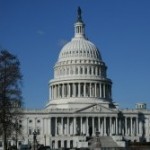 After months of vague expressions of opposition, the United States officially confirmed on Thursday that they will veto a Palestinian statehood bid at the United Nations Security Council should such a bid be made. Speaking with reporters, State Department spokesperson Victoria Nuland said in comments posted on the State Department website that “if something comes to a vote in the UN Security Council, the US will veto.” Despite the veto discussion, the Palestinians are still committed to going to the UN later this month.
After months of vague expressions of opposition, the United States officially confirmed on Thursday that they will veto a Palestinian statehood bid at the United Nations Security Council should such a bid be made. Speaking with reporters, State Department spokesperson Victoria Nuland said in comments posted on the State Department website that “if something comes to a vote in the UN Security Council, the US will veto.” Despite the veto discussion, the Palestinians are still committed to going to the UN later this month.
Nuland’s comments came one day after former US official Wendy Sherman, in testimony as part of a confirmation hearing for a nomination to serve in the current State Department, publicly confirmed that the US was committed to the veto. Nuland expressed surprise that Sherman’s expression of the veto stance drew such a “press furor.”
“It should not come as a shock to anyone in this room that the US opposes a move in New York by the Palestinians to try to establish a state that can only be achieved through negotiations,” said Nuland. US officials had previously expressed opposition to the move in varied ways, but had yet to explicitly threaten the veto in public.
However, despite the commitment, the Palestinians could still force the Americans to use the veto, or avoid the Security Council altogether and seek a more symbolic and limited resolution from the UN General Assembly. While the Council is able to pass a legally-binding resolution that would enable full Palestinian statehood membership at the UN, the General Assembly can only upgrade their status to a nonvoting observer.
Despite the lack of legal power resulting from such a move, the upgraded status could help the Palestinians in a diplomatic and legal offensive against Israel. If the Palestinians go to the UN General Assembly, the US would not be able to veto a resolution there and the Palestinians enjoy broad support from the many Arab states and nations outside the West.
According to Sherman, who is not yet an official member of the Obama administration, the US does not expect the Palestinians to go to the Security Council. However, they are still concerned about their turning to the General Assembly.
In comments as part of her nomination hearing at the Senate Committee on Foreign Relations, and posted in a video on the committee website, Sherman said of the Palestinians going to the Security Council, “our expectation is that will not occur.” Nuland sidestepped the matter while implicitly challenging Sherman’s characterization of US expectations. Said Nuland, “I can’t parse the transcript except to say that I would expect that what she was intending to convey there was that our diplomacy is going to continue to try to persuade the Palestinians that going to New York in any way is not going to be productive, but certainly the Security Council move is not going to be productive.” She did say that “it is not at all clear” the Palestinians will go to the Council.
The Americans remain committed to trying to convince the Palestinians to return to direct negotiations with Israel. To that end, two US representatives met with Palestinian President Mahmoud Abbas on Wednesday. However, it doesn’t appear to be having the desired effect.
After the US meeting with Abbas, a Palestinian official reiterated their intention to go to the UN despite the veto threat. According to the WAFA Palestinian news agency, Presidential spokesman Nabil Abu Rudeineh said they still plan to go to the UN for statehood recognition and full UN membership. That would seem to indicate they still plan to go to the Security Council despite the US intention to veto.
He was also quoted as saying they “do not want to confront the US administration and we are committed to the negotiations,” assuming the Israelis meet their preconditions of basing the talks on the 1967 lines and stopping settlement activities. The Israelis already held a 10-month settlement freeze that ended last year, during most of which the Palestinians refused to hold direct talks.
While the veto would limit the effective Palestinian options to the General Assembly, forcing the US to take a public stand on the matter could cause the Americans diplomatic embarrassment and pressure them to be more accommodating on other fronts.
The Palestinians have claimed that the UN move does not contradict the peace process, but the US has a very different view on the matter. In her comments to reporters, Nuland said, “We are seeking a result in the region that is consensual between the two parties, that is lasting, that is durable, that leads to security.
“Taking action in New York is going to make that more difficult. You’re going to end up in a situation where you have the two parties on opposite sides in New York. That is not productive. It’s not going to help the environment, the conditions for peace.”
The Israelis, also opposed to the Palestinian UN move, have said in the past that a Palestinian statehood bid at the UN risks codifying hardline Palestinian positions in a resolution thanks to their “automatic majority” at the UN. As a result, Palestinian compromise in peace talks both now and in the future, would be made even more difficult.
(By Joshua Spurlock, www.themideastupdate.com, September 9, 2011)
